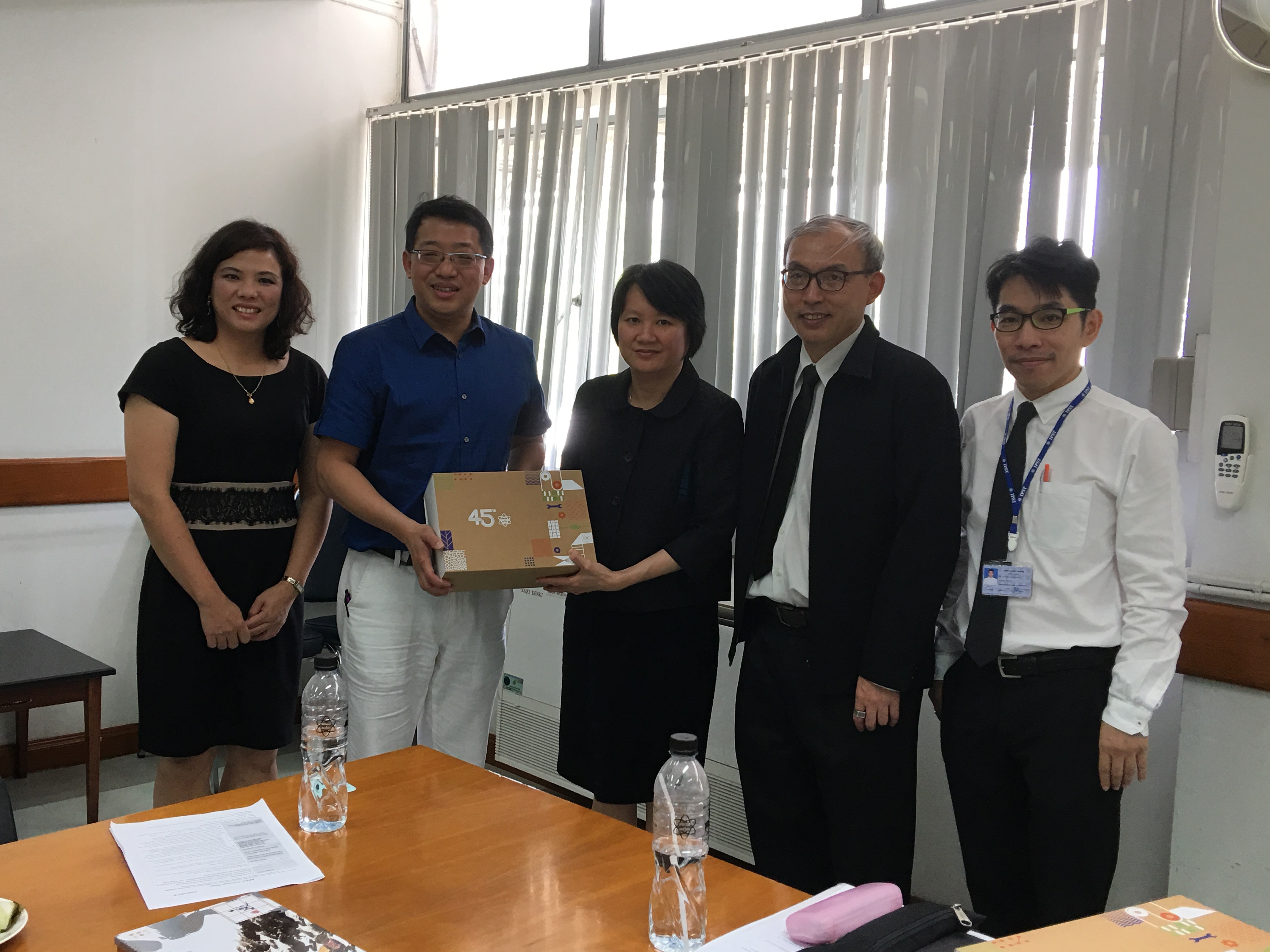Presentation on Taiwan’s High-Scope Project in the STEM Education Field, at SEAMEO International Congress on Education in Bangkok
Date:

SEAMEO (Southeast Asian Ministers of Education Organization) and Minister of Education of Thailand co-organized the International Congress on Education for the 21st Century “Making a Difference: Shaping a New Learning Paradigm for a Sustainable Southeast Asia (ICE 2017)” held at the Berkeley Hotel Pratunam in Bangkok on May 3 and May 4, 2017. The congress served as a platform for policy-makers and educators in the Southeast Asian region to share new learning paradigms and practices.
Outstanding educational experts were invited to be speakers at ICE 2017. Among them was Dr. Chang Chun-Yen, Director of the Science Education Center at National Taiwan Normal University. He is one of the experts in STEM education who were invited to share details of the Taiwan High-Scope Project with the ICE 2017 participants. In the parallel session on Enhancing Regional Competitiveness through STEM Education-International Trends and Changes for Stem Education, Dr. Chang talked about Taiwan’s experiences in developing innovative curriculum modules, enhancing teachers’ professionalism, improving students’ ability to engage in Inquiry-Based Science, and constructing a performance-based accountability system. His presentation attracted more than one hundred people very interested in STEM educational developments in Taiwan.
As well as being an opportunity for Taiwan’s high achievements in STEM education to be recognized globally, Dr. Chang’s presentation at ICE 2017 also drew more international interest in collaborating with Taiwan in STEM education fields. The success of STEM education at all levels is the key to the success of the economic development in Taiwan driven by IT, biochemical, and related industries. Taiwan is a model for other developing countries to learn from, to improve STEM education at home and raise the quality of their human capital for their long-term economic growth and prosperity.
Dr. Chang Chun-Yen also visited the Institute for the Promotion of Teaching Science and Technology (IPST) in Bangkok to discuss strategies and potential international collaboration. IPST is an autonomous entity under the direction of the Ministry of Education of Thailand and the sole authority responsible for formulating the SMT learning standards and indicators for primary and secondary education in Thailand. IPST and the Science Education Center at National Taiwan Normal University share common interests in developing STEM teacher profession, curriculum and initiatives and Dr. Chang had discussions with IPST about how both institutes could work together to develop new programs to raise the standards and quality of STEM education in Taiwan and in Thailand.
Dr. Chang’s participation at ICE 2017 and his interaction with many STEM educators from Thailand and from overseas there, and at IPST will hopefully lead to more international collaborative programs between Taiwan, Thailand, and other countries.
Photo:L-R: Ms. Khemmawadee Pongsanon, Acting Director of the Technology Division at the Institute for the Promotion of Teaching Science and Technology; Dr. Chang Chun-Yen, Director of the Science Education Center at National Taiwan Normal University; Dr. Supattra Pativisan, Vice President of the Institute for the Promotion of Teaching Science and Technology; Dr. Chaiwuti Lertwanasiriwan, Assistant to the President of the Institute for the Promotion of Teaching Science and Technology; and Mr.Ithipong Lokutrapol, Specialist at the Institute for the Promotion of Teaching Science and Technology.
